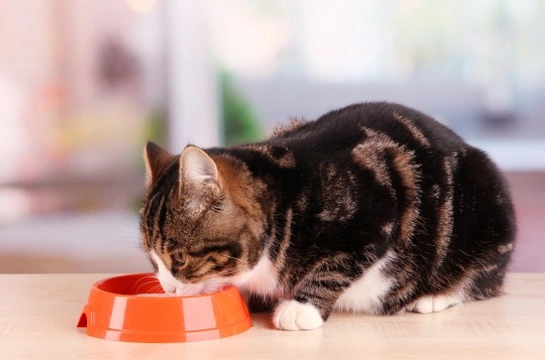
How to Feed Cats with Liver Disease
If you find out that your cat may be suffering from liver disease and the vet has indeed diagnosed the problem, the first thing you'd want to find out is how you to make your pet comfortable and prolong their lives for as long as possible. Once the vet has identified the underlying cause and recommended the right type of treatment, the next step is to sort out a diet that would suit your cat's condition and which will play a crucial role in their survival rate.
Understanding Liver Function
Understanding the role of the liver is important because when things go wrong, your pet's health will be affected quite dramatically. In the body, the liver has various functions which includes the following:
- The absorption of food which is done through digestion and transport of ingested fats
- The removal of any by-products that occur during digestion – these are the toxins like ammonia which are harmful to the body and brain
- The productions of proteins which include blood clotting, albumin and hormones
- The maintenance of normal levels of blood glucose (sugar)
When a cat suffers a liver disorder, this will and can ultimately damage the organ which in turn affects its function. There are various liver disorders that cats suffer from which include the following:
- Types of infection whether bacterial, fungal, viral , protozoal and parasitic
- Toxins and medication
- Inflammation – this can be spread to the liver from other areas of the body whether it's due to trauma, chemicals or some sort of auto-immune disease or even surgery
- Reduced flow of blood to the liver which can be due to heart failure or it could be a congenital abnormality
- Idiopathic – this is when the cause of the liver disease is unknown
Liver Disorders are Progressive
The majority of liver disorders seen in cats are progressive which means over time the condition gets worse. If liver dysfunction and failure eventually occur, toxins will build up in the liver which then affects a cat's nervous system and digestive tract. There would be a notable reduction of protein synthesis which results in blood vessels leaking, fluid build-up and subsequently blood clotting problems. The cat will also have very low blood sugar levels.
The Importance of Diet in Cats With Liver Problems
Studies have shown that diet plays a crucial role in cats suffering with liver disorders. The correct diet will help reduce the risk of any further damage to the liver by doing the following:
- To provide enough energy intake – the diet must contain high quality proteins
- To reduce sodium intake so that fluid retention is reduced
- To increase antioxidant intake as a way of protecting cells from any further damage
- To reduce any symptoms of Hepati Encephalopathy should these be present and which are caused by a build-up of ammonia which can affect the brain
How To Introduce the Correct Diet
It is crucial that the diet is formulated to meet all of the above criteria which means it could be worth discussing it with the vet who is treating your cat. A vet would be able to either advise on the type of diet you would need to feed them or they may put you in touch with a nutritionist. Very often owners are advised to prepare the meals for their cats rather than buy any cat food so that it contains all the necessary vitamins, minerals, nutrients and proteins. However, a typical healthy diet for cats with liver disease includes the following:
- High quality proteins because these will reduce the amount of work the liver has to do
- Digestible carbohydrates
- High quality fats
- Supplements like antioxidants, vitamin E, C and selenium which will help combat any oxidative stress
Any change in your cat's diet needs to be introduced very slowly so they accept the changes without any problem. It is important to remember that by nature cats do not like changes in their routines and this includes any alteration to their diets. Should your cat refuse to eat anything, then you may need to discuss the situation with your vet because a feeding tube may be needed in order for your pet to keep its strength up. If a cat becomes too weak this could lead to their condition worsening which could prove fatal.
What if Hepatic Encephalopathy is Present?
If the vet finds that hepatic encephalopathy is the underlying cause of the problem, then a diet that is low in protein will help slow down the production of harmful ammonia. If fluid is being retained in the abdomen then cutting out sodium intake will help reduce the chances of the condition getting worse. If your cat is suffering from a liver disorder, you would have to work closely with your vet once they have diagnosed the problem so that a correct diet can be set in place. When fed a specifically formulated diet in conjunction with a recommended veterinary treatment, cats with liver disease can live out a happy and comfortable life for as long as possible.



